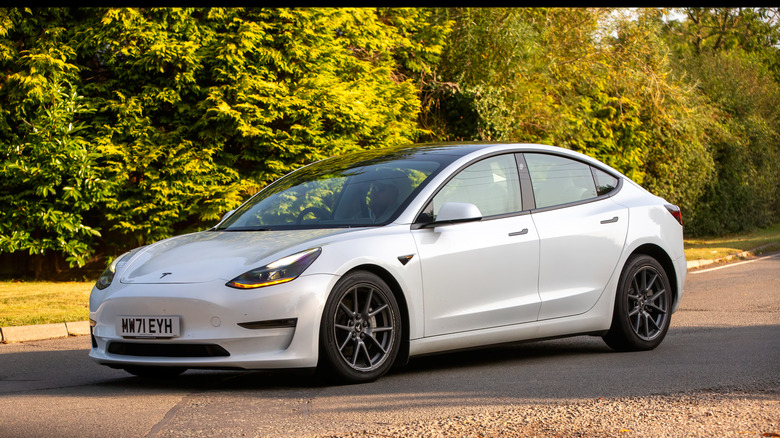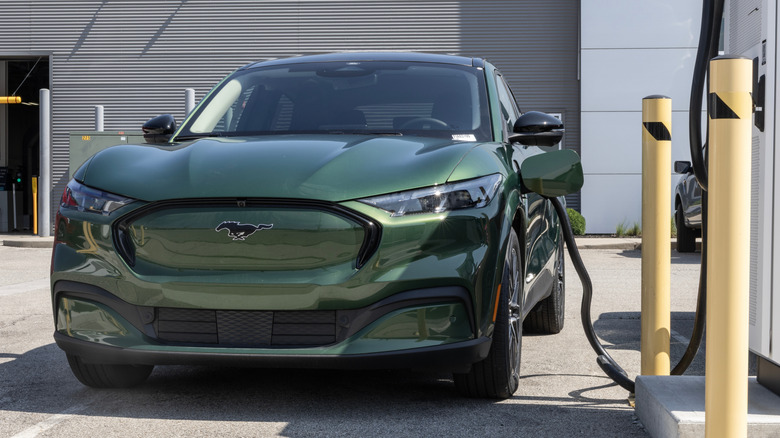These 5 EVs Are The Least Likely To Be Stolen In The US - Is Yours On The List?
After touching an all-time high of over a million thefts in 2023, auto thefts are on a downward trend in the US. However, it's still a big problem for any car owner, with over 330,000 vehicle thefts reported in the first half of 2025. There is one silver lining in this unfortunate statistic: Electric vehicles (EVs) remain some of the least stolen automobiles. According to data compiled by the Highway Loss Data Institute (HLDI), EVs account for eight of the 20 least stolen cars.
So, if you own an EV, you are luckier than folks who own an ICE vehicle from the likes of Hyundai, Honda, and Kia, as cars from these manufacturers are among the most stolen. But which EVs fare better than others when it comes to car thefts, or are the chances of getting stolen about the same across EV models? Let's find out.
Teslas top the list of least stolen cars
According to HLDI, Tesla cars were the least stolen vehicles, regardless of fuel type, between 2022 and 2024 in the US, making them also the least stolen EVs. The Tesla Model 3 AWD model sits at the top of the list, with the fewest thefts, followed by the Tesla Model Y AWD, Model 3 RWD, Model S AWD, and Ford Mustang Mach-E, among the EVs. All five of these vehicles, some of which are the best EVs on the market according to Consumer Reports, were also among the top 10 least stolen cars, regardless of fuel type.
This is certainly a point in favor of going electric, even though gas vehicles are cheaper to repair, if you live in a region with particularly high vehicle thefts. The only two Tesla cars not part of the top 20 least stolen vehicles are the Model X and Cybertruck, with its promised big range. Besides the Mach-E, the non-Tesla EVs that saw fewer thefts between 2022 and 2024 are the Volkswagen ID.4, Kia EV6 AWD, and BMW iX.
Why are EVs less likely to get stolen?
There are a number of reasons why EVs are stolen less frequently than ICE vehicles, especially when it comes to Teslas. One of the biggest deterrents for thieves are features like Tesla's Sentry Mode that uses the car's external cameras to keep an eye on surroundings and record videos in case of an incident. The car also notifies its owner when there is a problem, allowing them to react promptly.
EVs are known to feature advanced GPS systems that can easily pinpoint a car's location with accuracy of up to a few feet. Owners can also enable notifications in case the car leaves a predefined area. Another major factor stopping thieves from stealing an EV is the effort needed to "hotwire" one. The digital systems found in EVs make it quite hard to gain access and traditional hotwiring methods simply don't work.
The resale market for stolen EVs and their parts is also smaller than that of gas vehicles, which limits the financial incentive for would-be thieves. Finally, stolen vehicles in good condition are sometimes shipped to other markets for reselling, but if the EV infrastructure is limited in these destination countries, it can make stealing them in the first place less enticing.


